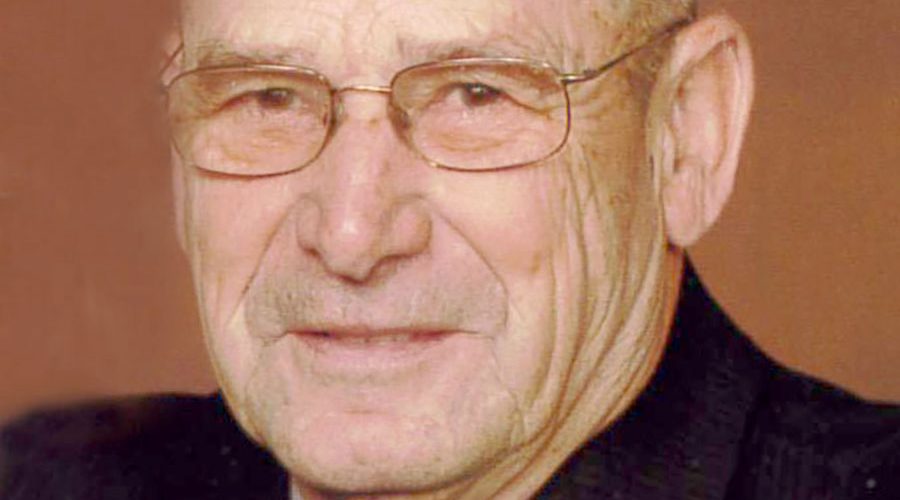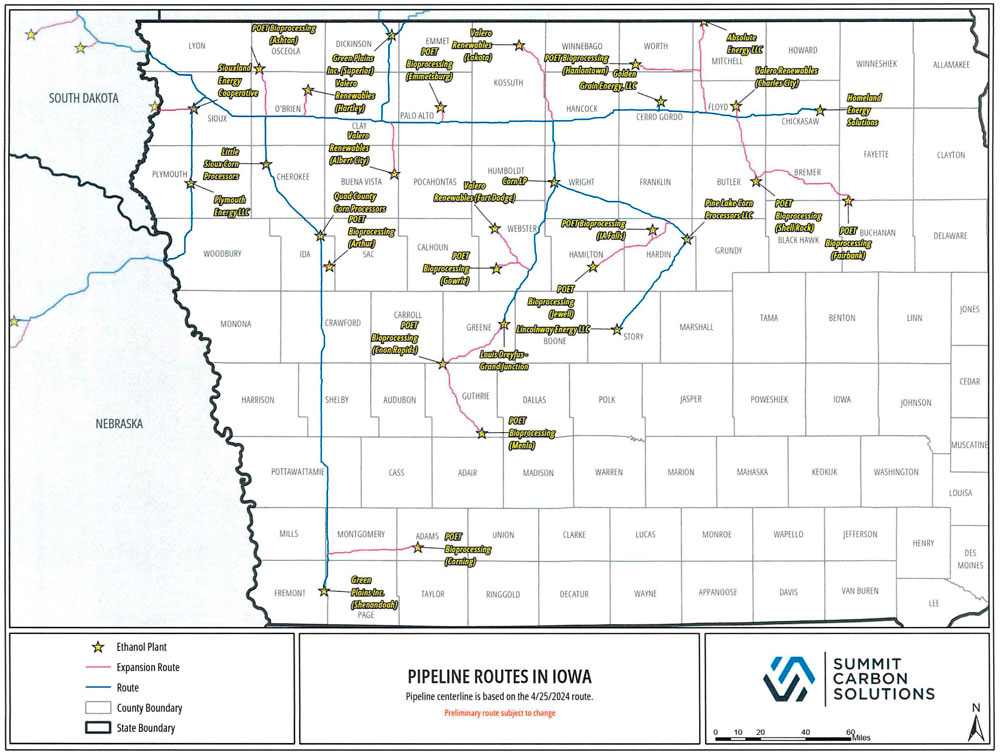North Dakota landowner attorneys argue survey access law is unconstitutional

By Jeff Beach, Iowa Capital Dispatch
A North Dakota state law that places few limitations on a survey crew’s access to private property should be declared unconstitutional, attorneys for landowners argued Monday before the North Dakota Supreme Court.
But an attorney for the state cautioned that striking down the law could have consequences beyond pipeline construction.
Brian Jorde of Domina Law in Nebraska and Derrick Braaten of Bismarck are representing landowners who refused to grant survey access to Summit Carbon Solutions, an Iowa-based company wanting to build a carbon capture pipeline through North Dakota and four other states.
Summit Carbon Solutions, referred to in court documents as SCS Carbon Transport, sued multiple landowners who don’t want the hazardous liquid pipeline to run through their property.
Summit prevailed in district court, arguing that it needs access to survey property to determine the best route for its pipeline that intends to ship greenhouse gas emissions from ethanol plants to underground storage sites in western North Dakota.
North Dakota law does not require written notice to landowners and allows survey crews access for projects that would benefit the public to show up at any time. Jorde argued written notice should be required and landowners should be compensated up front. They also should have a right to challenge access requests in court.
“They have a say-so to show up in court if they don’t voluntarily agree on the front end – which most people do when they come seeking an easement. But they have the right to be heard. And that’s what my clients as North Dakotans want, we want to be heard,” Jorde said.
Jorde argued that Summit’s need for survey access is not one of necessity, but one of convenience and that the state’s eminent domain process provides a way for Summit and others to obtain access through the courts.
“Eminent domain already has the procedure for this all laid out,” Jorde said. “All they have to do is simply get an access easement for the survey.”
Summit attorney Keith Blackwell acknowledged that there is no notice requirement under state law but the company would be open to a court placing such restrictions in their case.
“Especially time, place and manner or notice requirements. We wouldn’t have any objection to that,” Blackwell said.
But he maintained the North Dakota law is constitutional. So did North Dakota Solicitor General Philip Axt, representing the state.
“Striking down the survey statute would have consequences beyond just this case,” Axt said.
The state fears that striking down the law would slow the process for things such as water projects and road construction.
Jorde argued that the state has what is known as “quick take” access, allowing it to petition a court for easement access and being on the property the same day.
“This isn’t going to slow things down if you strike the statute wholesale,” Jorde said.
Legal challenges have slowed down the efforts of Summit to obtain survey access, property easements and pipeline route permits for its project.
The project aims to connect more than 30 ethanol plants in five states – Iowa, Minnesota, Nebraska, North Dakota and South Dakota – to underground storage in Mercer and Oliver counties in North Dakota.
Summit says the project will help the ethanol plants reduce their carbon score, benefiting the plants and the farmers who supply the plants with corn.
Summit’s original timeline called for obtaining easements and permits in 2022, starting construction in 2023 and being operational in 2024.
Survey access has also been a legal issue in Iowa, where state law requires 10-day written notice for surveyors to access a property. Judges in two different Iowa counties have ruled on opposite sides on the question of whether the law is constitutional.
While Summit awaits a ruling from the North Dakota Supreme Court on the survey access law in Malloy v. SCS Transport, a question of whether North Dakota counties can pass more restrictive zoning ordinances than what the state requires will be in front of the North Dakota Public Service Commission on Thursday.
— This story was originally published by North Dakota Monitor, which is part of States Newsroom, a nonprofit news network supported by grants and a coalition of donors as a 501c(3) public charity. North Dakota Monitor maintains editorial independence. Contact Editor Amy Dalrymple for questions: info@northdakotamonitor.com. Follow North Dakota Monitor on Facebook and Twitter.
— Iowa Capital Dispatch is part of States Newsroom, a network of news bureaus supported by grants and a coalition of donors as a 501c(3) public charity. Iowa Capital Dispatch maintains editorial independence. Contact Editor Kathie Obradovich for questions: info@iowacapitaldispatch.com. Follow Iowa Capital Dispatch on Facebook and Twitter.









Social Share